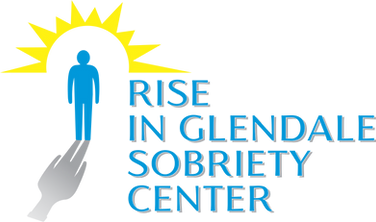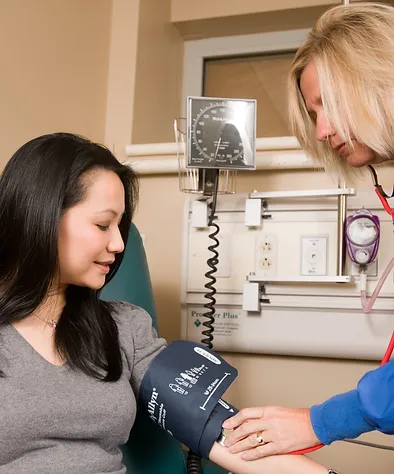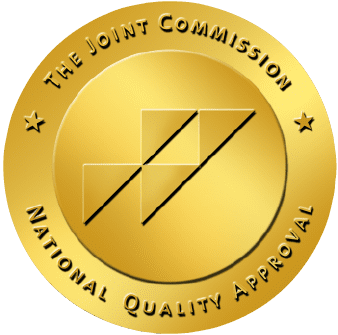
At Rise in Glendale Sobriety Center, behavioral therapies are a crucial component that have been proven to be very effective in engaging patients as they progress through their supervised, residential treatment plan for substance abuse addiction.
These behavioral therapy approaches provide incentives for patients to remain abstinent, modify their attitudes and behaviors related to substance abuse, and increase their life skills to handle stressful circumstances and environmental cues that may trigger intense cravings for substance use. Behavioral therapies can also improve the effectiveness of supervised medications and help individuals break the cycle of compulsive abuse while staying in treatment for longer periods of time.
We understand that every patient is unique and requires a personalized approach to their treatment. That’s why we offer a variety of behavioral therapies to ensure that each patient receives the care that best suits their treatment needs. Our professional team works closely with patients to determine the treatment approach that will be most effective for them.
Furthermore, we believe that combining the appropriate types of behavioral therapies in the most effective and supportive rehabilitative environment settings is essential to help our patients overcome substance use disorders, behavioral addictions, and dependency on psychoactive substances like alcohol, prescription drugs, and street drugs.
Our goal is to tailor each patient’s treatment with the proper behavioral therapies so we can effectively treat their unique needs and circumstances, giving them the best opportunity to learn, change and overcome substance use addiction and dependencies on those psychoactive substances.
At Rise in Glendale Sobriety Center, we are committed to helping our patients live happy, healthy lives free from addiction.




Behavioral therapies have been proven to be effective in treating substance abuse. These approaches aim to engage patients in treatment, incentivize abstinence, modify attitudes and behaviors related to substance abuse, They can also help improve life skills to better cope with stressful situations and environmental triggers that may lead to relapse. Below are a list of the effective behavioral therapies we intergrade into a patient’s residential treatment plan at Rise in Glendale Sobriety Center.

Cognitive-Behavioral Therapy (CBT) is a highly effective, proven method for addressing maladaptive behavioral patterns such as substance abuse. Its also helps in preventing relapse in the treatment of substance use disorders. By helping patients recognize, avoid, and cope with situations that may trigger drug use, CBT has been successful in treating addiction to alcohol, marijuana, cocaine, and methamphetamine.
Based on the theory that learning processes play a critical role in the development of these patterns, CBT teaches individuals to identify and correct problematic behaviors using a range of different skills. By applying these skills, individuals can effectively stop drug abuse and address other co-occurring problems. CBT involves exploring the positive and negative consequences of continued drug use, self-monitoring to recognize cravings early, identifying high-risk situations, and developing strategies for coping with cravings and avoiding those situations. These techniques can be helpful for individuals struggling with addiction or other mental health issues.

Contingency Management Interventions (CMI) uses positive reinforcement such as providing motivational incentives, rewards or privileges for remaining drugfree, for attending and participating in counseling sessions, or for taking treatment medications as prescribed. CMI principles have been shown to be a highly effective approach in treating addiction and reinforcing positive behaviors such as abstinence. CMI with motivational incentives has been successful in treating addiction to alcohol, marijuana, stimulants, heroin, cocaine and opioids.
The goal of CM interventions is to systematically weaken the influence of reinforcement derived from substance use, and to increase the frequency and magnitude of reinforcement derived from healthier alternative activities, especially those that are incompatible with continued substance use. By providing incentives for positive behaviors and discouraging negative ones, patients are motivated to stay on track with their recovery. These incentive-based interventions have been successful in helping many individuals overcome addiction and achieve long-term sobriety.

Motivational Enhancement Therapy (MET) is a counseling approach that helps individuals resolve their ambivalence about engaging in treatment and stopping their substance use. By evoking rapid and internally motivated change, MET aims to help patients achieve long-term recovery. When combined with Cognitive Behavioral Therapy, MET can be a more comprehensive treatment approach. MET has been successful in treating addiction to alcohol, marijuana, heroin and cocaine.
An initial assessment session is completed, followed by one-on-one treatment sessions. We use motivational interviewing principles to strengthen motivation and build a plan for change. Our approach is designed to help the patient achieve their goals and improve their well-being. Therapists provide a supportive and non-judgmental environment for patients to discuss their struggles and progress. Encouraging patients to bring a significant other can also be helpful in providing additional support and accountability. In all situations, we continue to monitor progress and providing coping strategies for those patient’s who have high-risk situations.

The Matrix Model is a proven framework for addiction treatment that helps substance abusers achieve abstinence. With the guidance of a trained therapist, patients learn about critical issues surrounding addiction and relapse, while also becoming familiar with self-help programs. Regular urine testing is used to monitor substance use and provide ongoing support. TMM has been successful in treating addiction to stimulants, cocaine, alcohol, methamphetamine, and heroin.
Therapists play a crucial role in promoting the self-esteem, dignity, and self-worth of their patients. Building a positive relationship between the patient and therapist is essential for patient retention and successful treatment outcomes. Through their training and expertise, therapists are equipped to conduct treatment sessions in a way that fosters a supportive and empowering environment for their patients. Treatment for substance abuse can involve a variety of components, including relapse prevention, family and group therapies, drug education, and self-help participation. Additional treatment options may include family education groups, early recovery skills groups, relapse prevention groups, combined sessions, urine tests, 12-step programs, relapse analysis, and social support groups.

Twelve-Step Facilitation Therapy (TFT also known as 12-Step) is a proven, evidence based practice (EBP) with active engagement strategies that aims to help substance abusers become affiliated with and actively involved in TFT self-help groups. By promoting abstinence, this therapy can help individuals overcome their addiction and lead a healthier life. TFT has been successful in treating addiction to stimulants, cocaine, alcohol, methamphetamine, and heroin.
The road to recovery from substance addiction can be challenging, but there are three key components that are predominate. Firstly, acceptance is crucial, as it involves acknowledging that addiction is a chronic disease that requires abstinence and support. Secondly, surrendering to a higher power and accepting the help of other recovering addicts can be beneficial. Lastly, active involvement in 12-step meetings and related activities can help sustain recovery. Remember, you are not alone in this journey. Treating alcohol dependence with 12-step programs and (12-step facilitation) has become a standard practice. However, TFT has proven to be a powerful therapy for treating other forms of substance abuse.

At Rise in Glendale Sobriety Center, we understand the disease of addiction…and to that we treat the whole person. Elements such as environment, psychological traits, and stress levels can contribute to substance use disorders, behavioral addictions, and dependency on psychoactive substances like alcohol, prescription drugs, and street drugs. Substance use disorder is a complex illness that can affect anyone, regardless of their socioeconomic status, gender, age, or ethnicity. It is a complex illness that requires professional help and support to overcome addiction and those triggers that cause relapse. With the right treatment and resources, recovery is possible.
Our standard Inpatient Substance Abuse Treatment Program at Rise in Glendale Sobriety Center is a comprehensive 30-day program which includes medical detoxification followed by a supervised residential treatment plan. After completing the 30-day comprehensive treatment plan, we ensure that each patient departs our facility with an aftercare support plan as they transition back home, giving them the best opportunity to live happy, healthy lives free from addiction.

At Rise in Glendale Sobriety Center, we will prioritize your needs and provide personalized care. When you call us, our dedicated admissions team will take time to understand your addiction needs. They will also guide you through the process from verifying your insurance coverage (if you have insurance) to your enrollment process to your first day of treatment.
At Rise in Glendale Sobriety Center, our program directors are here to help you create an actionable treatment and recovery plan combined with proven behavioral therapies for treating your substance use disorders, behavioral addictions, and dependency on psychoactive substances. Our professional staff members have extensive knowledge and experience with treating addiction and and those triggers that cause relapse. Our behavioral therapies and evidence-based treatment methods have proven to be successful in helping patients return to a productive and functioning environment within their family, workplace, and society. We give our patients the best opportunity to learn, change and overcome substance use addiction so they can live happy, healthy lives free from addiction.
Addiction can make you feel, isolated, and even ashamed. But at Rise in Glendale Sobriety Center, you'll never feel judged for the situation you are in. Substance use disorder is a complex illness that can affect anyone. Addiction is a chronic disease that can have a strong physical or psychological control over your urges to do something or use something. But you're not alone. Our trained team of addiction specialists are here to help. We offer tailored treatment plans that include medical detoxification to help you on your journey to recovery
“We believe that achieving sobriety is just the first step towards a fulfilling life. That’s why we put in place an aftercare support plan to help you maintain your sobriety and build a brighter future. Let us be your partner on this journey towards a healthier, happier you.”


3449 Stancrest Drive,
Glendale, CA 91208
License Number: 191304AP
Effective Date: 2/1/2024
Expiration Date: 1/31/2025
RISE in Glendale Sobriety Center
3449 Stancrest Drive,
Glendale, CA 91208
General Email:
info@risesobrietycenter.com
General Info & Admissions:
(747) 255-7083
For any general inquiries, please fill in the following contact form: